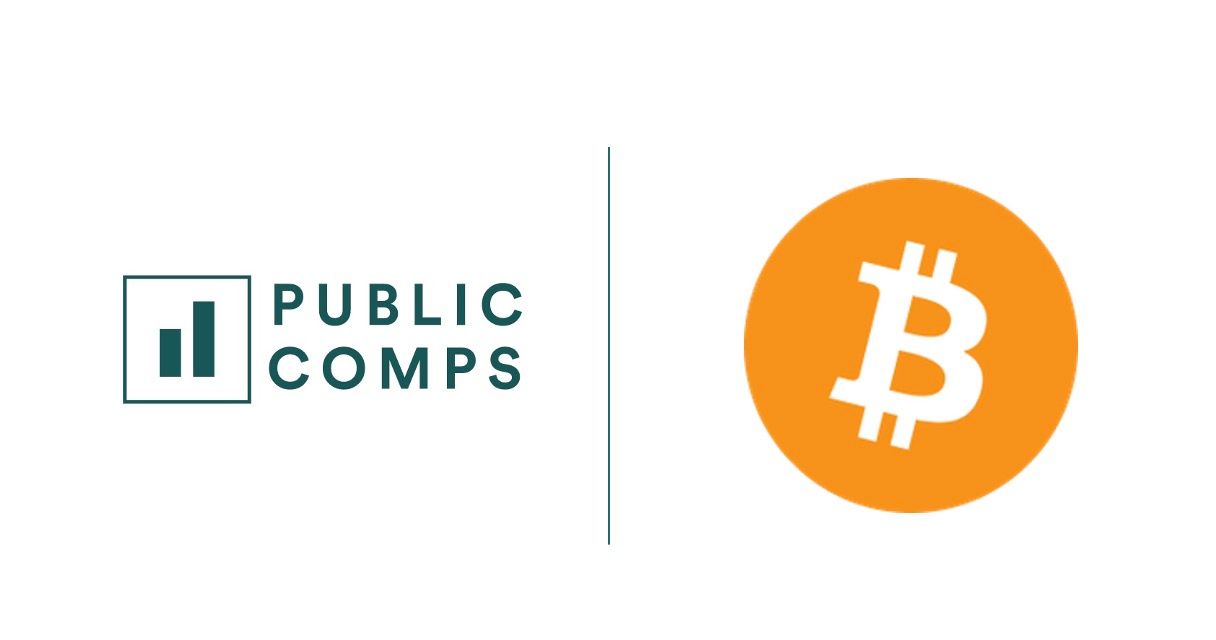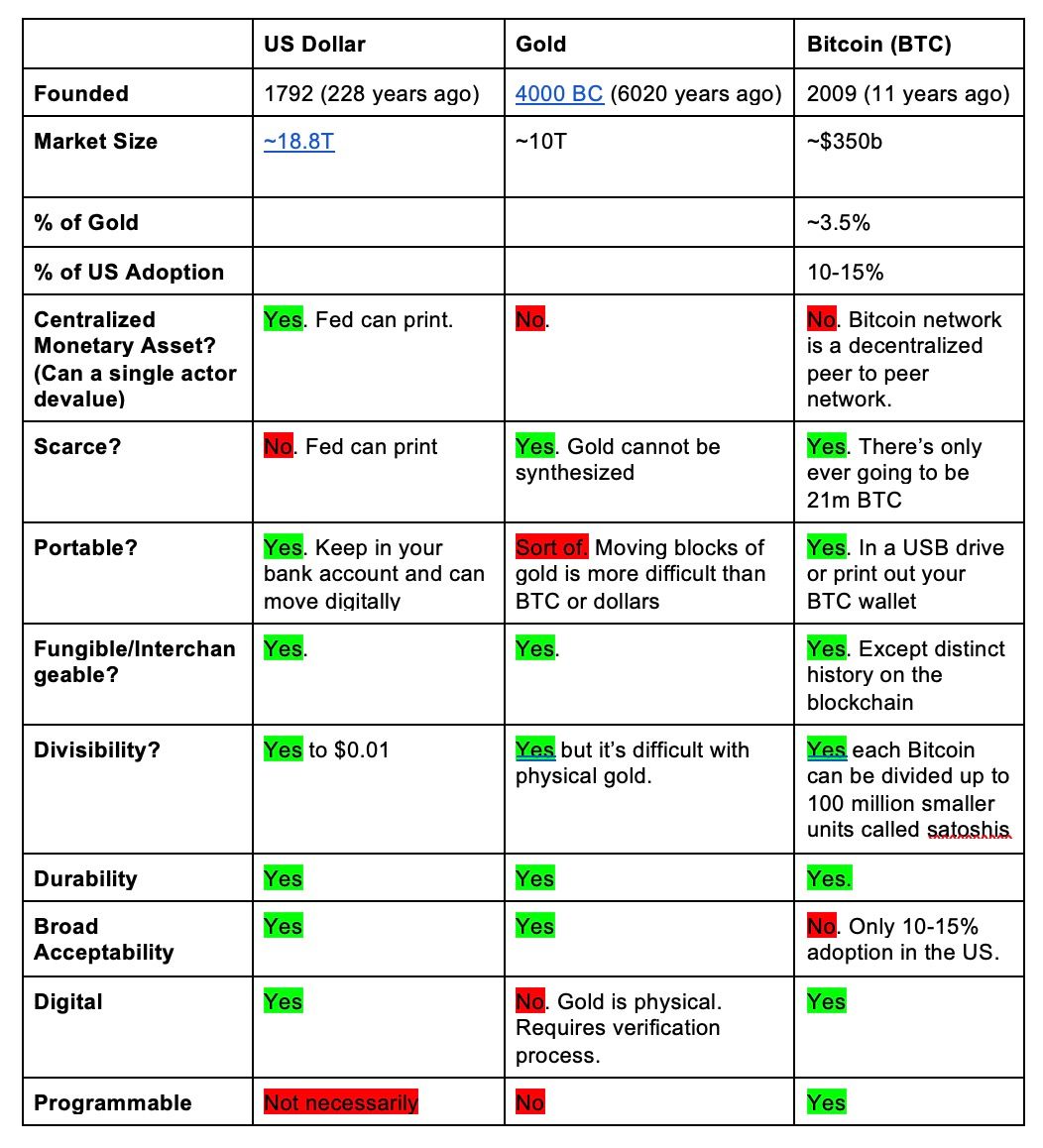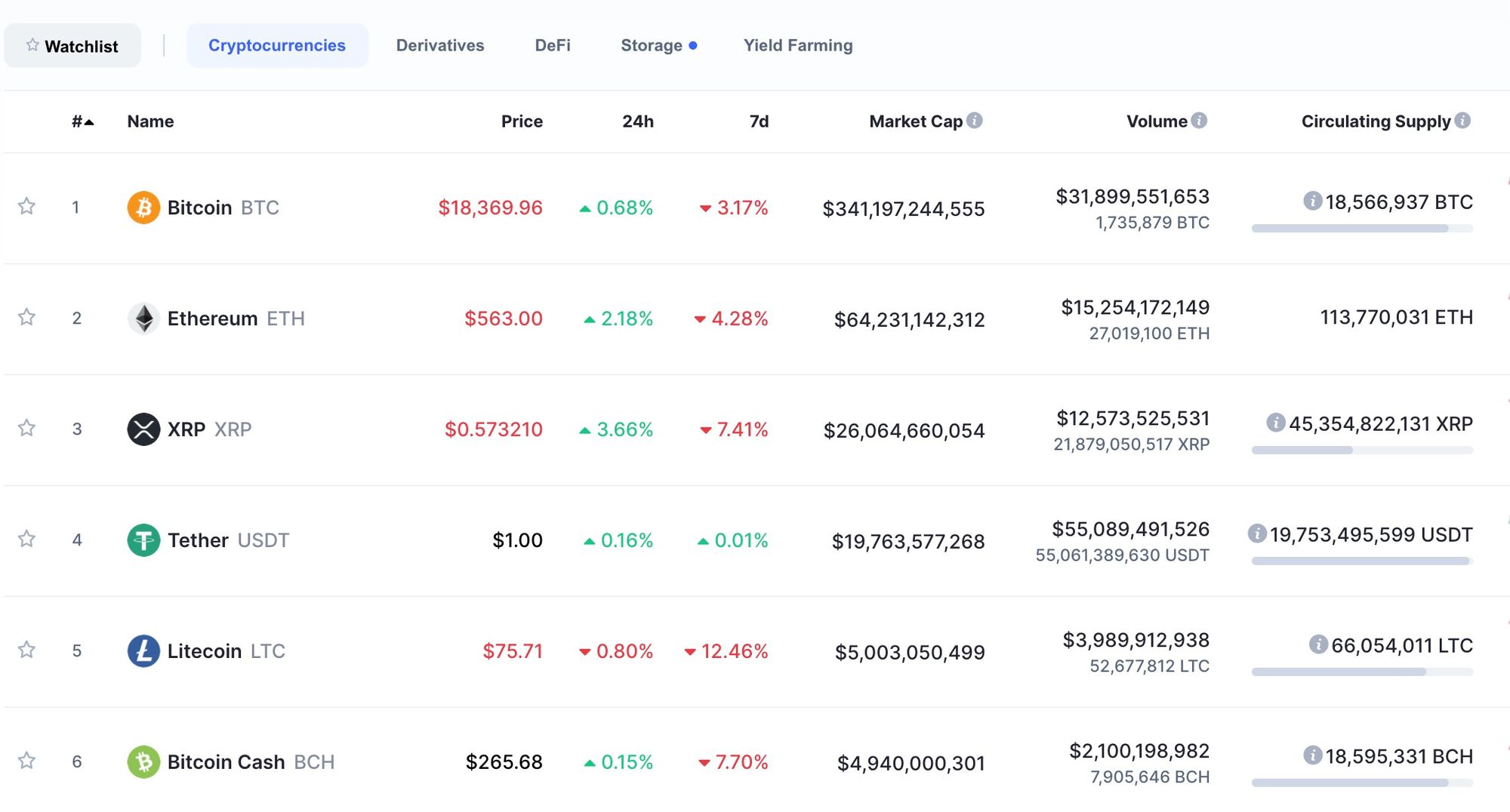The Bull Case for Bitcoin in the 2020s - A Macro Perspective
Bull Case on Bitcoin in the 2020s from a macro investor's perspective

"Embrace accountability, and take business risks under your own name. Society will reward you with responsibility, equity, and leverage." - Naval
Background
Caveat: I'm a software investor by training who spent time in the crypto boom of 2017 studying Bitcoin and looking at startups building infrastructure for exchanges, institutional investors, the government, etc. I've remained an investor (I mean hodl-er) of Bitcoin since buying in 2017/2018 and wanted to better understand why we've had a run up in prices and what COVID-19 means for Bitcoin. But I'm not an expert on crypto – far from it – and instead would point others to read Matt Huang's piece if you want a more in depth read on why Bitcoin. I simply try to summarize the key drivers of Bitcoin from a macro perspective by reviewing the existing body of work out there.
TL;DR From a macro lens, COVID-19 seems to have accelerated the adoption of Bitcoin as 1) high government deficits due to COVID-19 and central banks printing money to finance deficits may lead to inflation and distrust towards financial systems/governments and drive investors towards stores of value like gold or Bitcoin (which we argue is better than gold) to preserve their wealth 2) governments are discouraging cash transactions so payments are shifting from cash to online payments of which Bitcoin is a potential payment rail.
Trade Recommendation: Long Bitcoin (USD-denominated) at $18,371 (12/9/2020 price at 11:21pm PT)
Key Drivers
- Institutional investors: Institutional investors are increasingly allocating a percentage of portfolio to Bitcoin as a hedge against inflation and for the potential upside due to the “risk on” environment of low rates.
- Retail investors: Increasing interest by retail investors as it’s become easier to buy and use Bitcoin and given the run up in Bitcoin prices.
- Shift from physical cash to digital currencies: Due to COVID, consumers are shifting from physical cash to digital currencies like Bitcoin which drive demand for the currency.
What is Bitcoin: Launched in 2009, Bitcoin is a digital currency that enables peer-to-peer payments that can settle instantly and doesn’t require a financial intermediary like a bank or a government. Unlike currencies issued by sovereign governments, Bitcoin is decentralized which means no one individual or actor can arbitrarily increase the supply of Bitcoin. All of the code that operates the Bitcoin blockchain is freely accessible online.
Market Narrative & Context: The prevailing market narrative is well highlighted by Ray Dalio who claims Bitcoin is a speculative bubble, isn’t very good as a medium of exchange, not a great store-hold of wealth because of its price volatility, the government will ban the currency if bitcoin is successful, and doubts central banks, major institutional investor, or business would use or buy Bitcoin. A NYU Economist stated “Bitcoin is the biggest bubble in human history”.
Investment Thesis:
Contrary to the market narrative, I'm long Bitcoin because:
- Bitcoin is an attractive hedge against inflation driven by historic deficit spending and expansionary monetary policy in response to COVID-19
- Investors are worried that central banks are monetizing debt and inflation may come in the coming years: US M2 is up 24% YoY from October ‘19 to October ‘20 and the US deficit grew to $3.1T because of the government spending in response to COVID. US Debt to GPD grew to 131% which is the highest it's ever been historically


- While government debt was climbing even prior to 2020, emerging market and advanced economy debt as a percentage of GDP are climbing due to the “Great Lockdown” from COVID-19

- Bitcoin, like gold, is scarce and there’s a fixed supply and investors are attracted to Bitcoin and gold as a potential hedge against future inflation of fiat currency.
- Devil's Advocate: it's worth noting that Bitcoin and gold prices have spiked in 2020 despite there not being a massive rise in inflation expectations in the US. It’s also worth noting gold spiked after the global financial crisis even though there was deflation: our read is the distrust of financial systems and governments led investors to flee to gold which may happen again given the massive run up in government deficit and debt.

2. Bitcoin is better than gold
- Bitcoin and gold have many similar properties which make for attractive stores of value: both are scarce (they are limited in quantity), divisible, interchangeable, and durable.
- But Bitcoin has additional properties that make it more attractive to gold: Bitcoin is also digital (gold is physical and requires verification), easy to purchase (BTC is easy to buy with Coinbase or Paypal), and portable (BTC you just need a usb drive vs gold requires physical storage)

3. There's evidence that some investors are choosing to invest in Bitcoin over gold
- A JP Morgan analyst pointed out while there was a modest outflow from gold ETFs starting in October 2020, there was an inflow into Grayscale Bitcoin Trust which is an investment vehicle working in accordance with the SEC reporting rules and popular among family offices. This suggests some institutions and family offices are investing in Bitcoin instead of gold.

4. Given the low interest rate environment, investors also like the appeal of Bitcoin’s upside
- Due to the “risk on” environment driven by low interest rates, investors are in search of yield and bitcoin is both a hedge against inflation and an opportunity with considerable upside.
- There are a couple of upside scenarios: if Bitcoin were to replace gold’s use case which is a $10T asset class, Bitcoin has a nearly 30x upside. International reserves were ~$13T in 2019 of which gold made up 11% or $1.3T. If governments were to choose to adopt bitcoin instead of gold or the US dollar for political reasons, Bitcoin has further market share it can capture.
5. 2020 saw the entrant of notable investors and organizations adopting Bitcoin
Here are some quotes from notable investors
- Druckenmiller Nov ‘20: “When you look at the extraordinary measures taken by the fed and that they're monetizing the debt, I think there’s a high probability we have inflation in 5-6 years...I’m a bit of a dinosaur, but I have warmed up to the fact that bitcoin could be an asset class that has a lot of attraction as a store of value.”
- Paul Tudor Jones May ‘20: “Bitcoin reminds me of gold when I first got into the business in 1976”
Here are some announcements from organizations
- Microstrategy adopts Bitcoin as Primary Reserve Asset August ‘20: The $3B public software company bought nearly $450m worth of Bitcoin in 2020 as a hedge against inflation and for its ability as a long term store value.
- Square puts 1% of total assets into Bitcoin Oct ‘20: Square invested $50m into Bitcoin as part of its strategy to embrace cryptocurrencies considering the Cash App in 2018 allowed users to buy and sell Bitcoin.
6. Unlike in 2017, Bitcoin is a lot easier to purchase and use in 2020
- Pre 2017, the main way for retail investors to buy bitcoin was to go onto an exchange like Coinbase which was a startup in Silicon Valley that wasn’t yet super reputable.
- Since then, a lot of notable and public consumer tech companies with large existing user bases like Robinhood (13m), Square Cash (30m) and Paypal (300m) have made it much easier to buy and sell bitcoin with much lower fees and ease.
- In February 2018, Robinhood offered users the ability to trade Bitcoin. The company currently has 13m users on its platform.
- In 2018, Square Cash launched Bitcoin trading. Cash App currently has 30m users.
- In October 2020, Paypal launchd a new service to allow its 300m users to trade cryptocurrencies including Bitcoin. In 2021, Paypal plans to allow users to use their cryptocurrencies to pay the over 26m Paypal merchants.
7. COVID has driven consumers to use digital payments instead of cash
- COVID-19 has prompted governments and WHO to encourage businesses to turn to cashless transactions.
- The CEO of Paypal estimates that cash use declined 40-70% in the US. Bitcoin can be used to pay for over 26m Paypal merchants starting in 2021 and there are anecdotes like this one of a family surviving in multiple countries while just paying in Bitcoin.
- COVID has accelerated the adoption of digital payments and Bitcoin will benefit as an additional electronic payment rail for consumers to transact with businesses.
Risks to Bitcoin and this trade?
- Bitcoin network or exchanges get compromised which would reduce trust in Bitcoin
- Mitigant: There’s been a lot more infrastructure built out to protect exchanges or to protect against money laundering since 2017 by tech startups like Chainalysis in KYC/AML that recently raised at $1b and Bitgo which Paypal bought. Square open sourced their security offering to store bitcoin securely. Coinbase going public in 2021 should give investors further confidence in the roles of the exchanges. It’s increasingly difficult for actors to overtake the Bitcoin network.
2. Price volatility drives users away from wanting to use Bitcoin.
- Mitigant: Just like any asset class or commodity, Bitcoin is subject to supply and demand and given supply is more or less fixed, changes in demand by users buying and selling Bitcoin will affect prices. We see volatility in gold too which started the year at $1,474/oz reached $2,036/oz (+38%) and then now sits at $1,838 (-9.8% from the peak). As bitcoin prices rise, historically that has led to more users.


3. Another cryptocurrency replaces bitcoin.
- Mitigant: There have been forks of Bitcoin like Bitcoin Cash but Bitcoin has remained the predominant leader. Bitcoin Cash (BCH) sits at $5.4B marketcap whereas Bitcoin (BTC) sits at $357B marketcap or 66x the size of BCH. Bitcoin has demonstrated a tremendous amount of resilience and given the network effects that exist with money, every day Bitcoin survives and there are more users, the more powerful the network becomes.

4. The run up in Bitcoin prices in 2020. Bitcoin is up 156% YTD
- Mitigant: The rise of Bitcoin prices historically have led to more retail and investing interest in the past. The run up may actually lead to more user adoption long term.

5. Governments banning the use of Bitcoin:
- The Chinese government discourages Bitcoin mining, prohibits banks from working with services that handle cryptocurrencies, and restrict crypto trading platforms. If the US and other countries were to move to ban the use and the exchanges, this will have material negative impact on Bitcoin.
- Mitigant: The US government is developing frameworks of regulating and managing cryptocurrencies and seem to be working with leading institutions like Coinbase and other proponents in making sure it's effective at deterring illicit use and money laundering. The US Federal Reserve is exploring hypothetical designs of a digital currency (which could be competitive and bad for Bitcoin as a form of payment)
Trade Proposal
- Buy Bitcoin at the $18,373 in USD holding for least 5 years (ideally 10 years)
- What could go right (Upside Case): Bitcoin really replaces gold. Gold's market cap is ~$10T and so we assume Bitcoin is the same size at gold. That's a nearly ~30x upside case.
- Base case: BTC is $50,000 or $1T asset class (~10% of gold) which is 2.7x upside (170%). Bitcoin used as a store value but does not completely replace gold. Central banks buy and hold Bitcoin as part of their reserves.
- Downside case: BTC goes back down to ~$10k or ~50% drop. We think with more institutions buying and holding and the 2020 rally driven less by Asian investors and retail investors, we think the downside will be a lot less than the past.

